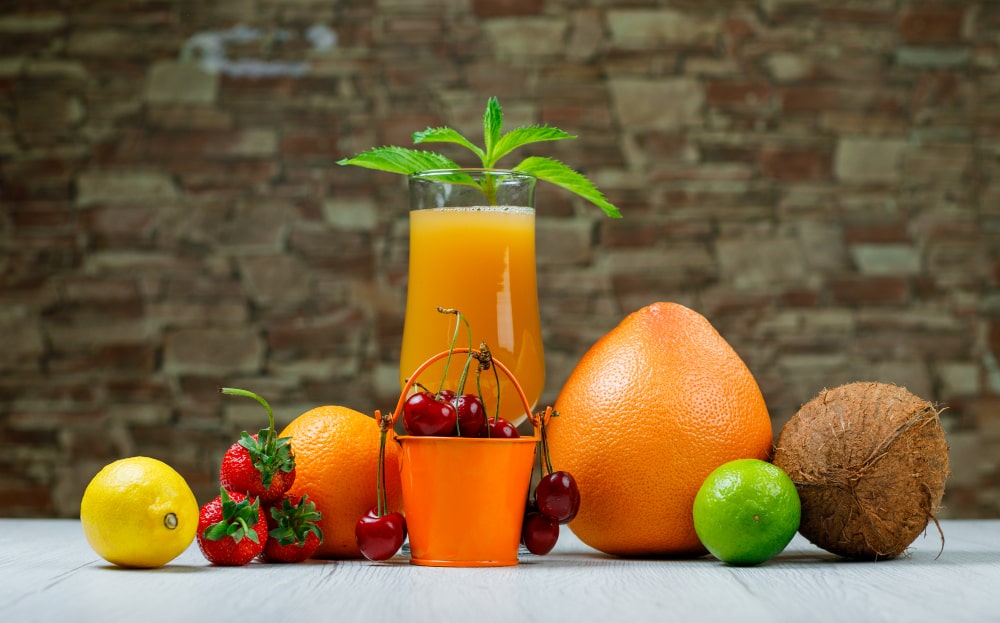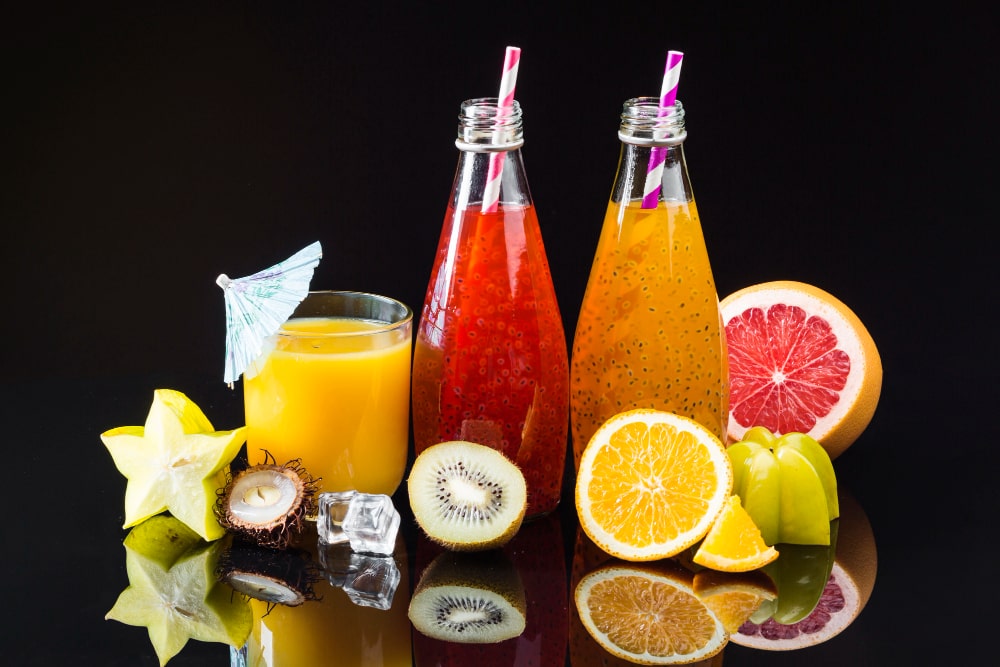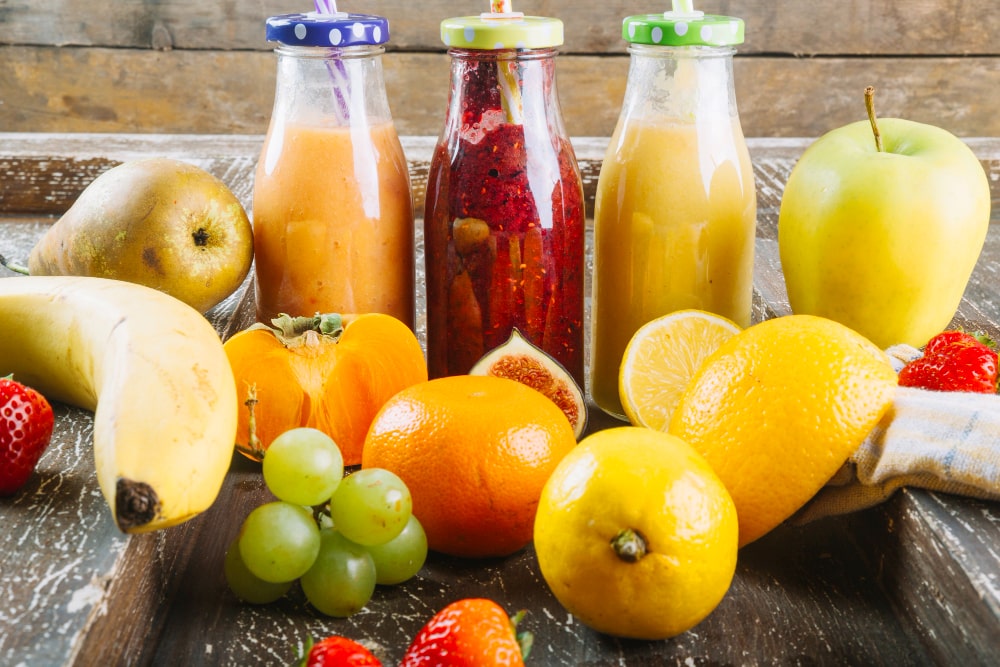Are you searching for a delicious and nutritious way to boost your health life? If so, then look no further than fruit juice! Its natural flavors and vitamins make it a great alternative to sugary beverages. Fruit juice can offer a range of health benefits, from immune system support to improved digestion. It can also be used as a natural sweetener in recipes and drinks. In this article, we’ll explore the top benefits of juicing and discuss some of the best fruits to juice for your health. Read on to learn why you should choose fruit juice!
Why Choose Fruit Juice?
Fruit juice is a nutritious and delicious way to get more vitamins, minerals, and antioxidants into your diet. It can be made from almost any fruit, so you can easily customize it to suit your preferences. Plus, it’s much lower in calories than most other sweetened beverages.
Fruit juice can also be a great way to get more fruits into your diet. Juicing is an easy option if you’re not a fan of eating whole fruits. Juicing is also a great way to use leftover fruit that’s about to go bad.
Top Benefits of Juicing
There are many benefits to drinking fruit juice, including:
- Improved digestion: The vitamins and minerals in juice help to break down food more efficiently. This can improve digestion and help your body absorb the nutrients it needs.
- Boosted immunity: Certain fruit juices are high in antioxidants, which can help strengthen your immune system.
- Detoxification: The antioxidants in juice can help your body eliminate toxins.
- Increased energy: Fruit juices are a natural energy source and can give you the extra boost you need to get through the day.

Read More: Can You Eat Grapes While Pregnant: A Comprehensive Guide
Factors to Consider Before Juicing
When it comes to juicing, there are some things you should keep in mind. For example, you should pay attention to the sugar content of your juice. Some fruits are naturally higher in sugar than others, so it’s important to be aware of this when juicing.
You also need to make sure that you use fresh, ripe fruit for juicing. Overripe fruit can give your juice a bitter or sour taste. Additionally, some fruits don’t juice well, so research the best juicing techniques for the type of fruit you’re using.
The Best Fruits to Juice
There are many fruits that work well for juicing. Here are some of the best options:
1) Oranges: Tangy and Refreshing
Oranges are an excellent vitamin C and antioxidant source, making them a great juice choice. They’re also very refreshing and can add a zesty flavor to any juice blend.
2) Apples: Sweetness and Versatility
Apples are naturally sweet and provide a versatility that makes them perfect for mixing with other fruits. They’re also packed with vitamins and minerals, making them a great choice for juicing.
Read More: Apple Juice for Constipation: A Natural Remedy for Digestive Relief
3) Berries: Antioxidant Powerhouses
Berries are rich in antioxidants, which can help boost your immune system and protect against disease. They’re also low in sugar and add a sweet flavor to any juice blend.
4) Pineapples: Tropical Delight
Pineapple is a great addition to any juice blend. Not only does it taste delicious, but it’s also packed with vitamin C and other vitamins and minerals. Plus, its tropical flavor makes for a refreshing drink!
Read More: Pineapple Orange Juice: Benefits, Recipe, Nutrition Facts
5) Grapes: Small Yet Mighty
Grapes are small yet mighty fruits that pack a serious nutritional punch. They’re high in antioxidants and have anti-inflammatory properties, making them great for boosting your health.
Read More: How to Make Grape Juice: A Refreshing and Nutritious Drink
6) Watermelons: Hydrating and Delicious
Watermelon is an excellent source of hydration, with 92% of its weight coming from water. It also contains lycopene and other essential vitamins and minerals.
7) Carrots: The Veggie Sweetener
Carrots are naturally sweet and make a great addition to any juice blend. They’re packed with essential vitamins, minerals, and antioxidants that can help boost your health.
Read More: How to Make Carrot Juice: A Refreshing and Nutritious Drink
8) Cucumbers: Light and Refreshing
Cucumbers are light yet flavorful fruits that can add a refreshing flavor to any juice blend. They’re also a great source of hydration and contain essential vitamins and minerals.
Read More: Top 11 Cucumber Juice Benefits: How to make Cucumber Juice?
9) Kiwis: Vitamin C Boost
Kiwis are an excellent source of vitamin C, potassium, and other essential nutrients. They have a unique sweet-tart flavor that makes them perfect for juicing.
10) Pomegranates: Ruby-Red Elixir
Pomegranates are packed with antioxidants and have anti-inflammatory properties, making them a great choice for juicing. Their ruby-red juice is also incredibly refreshing!
Read More: The Best Pomegranate Juice in 2023: Discover the Health Benefits
11) Mangoes: Tropical Goodness
Mangoes make any juice blend taste like summer in a glass. They’re a great source of vitamins A and C and essential minerals.
Read More: How to Make Mango Nectar Juice: A Taste of Tropical Paradise
12) Lemons: Zesty and Invigorating
Lemons are a great choice for juicing, adding a zesty flavor to any juice blend. They’re also high in vitamin C and other essential vitamins and minerals. Plus, their tartness can help balance out sweeter fruit juices.
Creating the Perfect Juice Blend
Now that you know some of the best fruits to juice, it’s time to start experimenting with flavor combinations! For a basic juice blend, combine two or three different types of fruit to create something sweet and refreshing.
You can add spices or herbs to your juice blend for a unique flavor. Ginger, turmeric, and lemon are great options that add flavor and provide numerous health benefits. Just research the best way to use each one before adding it to your juice!

Tips for Juicing Success
Making your juice can be a fun and rewarding experience. Here are some tips to help you get started:
- Use fresh, ripe fruit for the best flavor.
- Start with simple recipes and experiment until you find something that you like.
- Add spices or herbs to your juice for an extra kick of flavor.
- If you add greens to your juice, use a high-powered blender for the best results.
- Drink your juice as soon as possible after juicing, as it can lose its nutritional value over time.
With these tips in mind, you’ll be well on your way to creating delicious and nutritious homemade juices!
Read More: 12 Best Fruits for Weight Loss: A Comprehensive Guide
Storing and Enjoying Your Fresh Juice
Once you’ve made your fresh homemade juice, storing and enjoying it properly is important. Keep your juice chilled until you’re ready to drink it for the best results. Additionally, make sure to only keep your juice for a few days before discarding any leftovers.
When it comes time to serve your juice, make sure to serve it in a glass with plenty of ice. This will help keep the juice cool and refreshing.
Conclusion
Juicing can be a great way to get the vitamins and minerals your body needs. With a few simple tips and some experimentation, you can easily create delicious and nutritious homemade juices packed with essential nutrients. Juicing is the perfect option whether you’re looking for a refreshing energy boost or want to enjoy a tasty drink! So next time you need a pick-me-up, reach for your juicer and whip up a delicious concoction that will do good for your body and taste buds!
Read More: How to Make Aloe Vera Juice: Nutrition Facts, Benefits, Recipes
FAQs
No, you should always peel all fruits before juicing them. The peels can contain bacteria and toxins that could make you sick if ingested.
You can use juice pulp in various recipes, such as muffins, pancakes, or soups. Thoroughly rinse the pulp first to remove any remaining toxins or bacteria.
You can store homemade juice in the refrigerator for up to 3 days. Just keep it sealed tightly and consume it as soon as possible after juicing. This will ensure that it retains its nutritional value and freshness.
Some fruits should not be juiced as their peels contain toxins and bacteria. These include apricots, cherries, plums, and avocados. It is best to avoid juicing these fruits or peel them before juicing.
Yes, you can mix fruits and vegetables in a single juice. Use a high-powered blender; some vegetables are too fibrous for regular juicers. Adding greens like kale or spinach can add nutrition to your juice blend.

